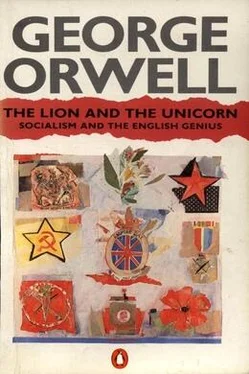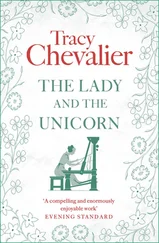George Orwell - The Lion and the Unicorn
Здесь есть возможность читать онлайн «George Orwell - The Lion and the Unicorn» весь текст электронной книги совершенно бесплатно (целиком полную версию без сокращений). В некоторых случаях можно слушать аудио, скачать через торрент в формате fb2 и присутствует краткое содержание. Год выпуска: 2018, Издательство: epubBooks Classics, Жанр: История, Публицистика, на английском языке. Описание произведения, (предисловие) а так же отзывы посетителей доступны на портале библиотеки ЛибКат.
- Название:The Lion and the Unicorn
- Автор:
- Издательство:epubBooks Classics
- Жанр:
- Год:2018
- ISBN:нет данных
- Рейтинг книги:3 / 5. Голосов: 1
-
Избранное:Добавить в избранное
- Отзывы:
-
Ваша оценка:
- 60
- 1
- 2
- 3
- 4
- 5
The Lion and the Unicorn: краткое содержание, описание и аннотация
Предлагаем к чтению аннотацию, описание, краткое содержание или предисловие (зависит от того, что написал сам автор книги «The Lion and the Unicorn»). Если вы не нашли необходимую информацию о книге — напишите в комментариях, мы постараемся отыскать её.
was written in London during the worst period of the blitz. It is vintage Orwell, a dynamic outline of his belief in socialism, patriotism and an English revolution. His fullest political statement, it has been described as ‘
’ and is as relevant now as it ever has been.
The Lion and the Unicorn — читать онлайн бесплатно полную книгу (весь текст) целиком
Ниже представлен текст книги, разбитый по страницам. Система сохранения места последней прочитанной страницы, позволяет с удобством читать онлайн бесплатно книгу «The Lion and the Unicorn», без необходимости каждый раз заново искать на чём Вы остановились. Поставьте закладку, и сможете в любой момент перейти на страницу, на которой закончили чтение.
Интервал:
Закладка:
In this motley list one can see the daring of German propaganda, its willingness to offer everything to everybody. But the various pro–Fascist forces are not consciously acting together, and they operate in different ways.
The Communists must certainly be regarded as pro–Hitler, and are bound to remain so unless Russian policy changes, but they have not very much influence. Mosley's Blackshirts, though now lying very low, are a more serious danger, because of the footing they probably possess in the armed forces. Still, even in its palmiest days Mosley's following can hardly have numbered 50,000. Pacifism is a psychological curiosity rather than a political movement. Some of the extremer pacifists, starting out with a complete renunciation of violence, have ended by warmly championing Hitler and even toying with antisemitism. This is interesting, but it is not important. 'Pure' pacifism, which is a by–product of naval power, can only appeal to people in very sheltered positions. Moreover, being negative and irresponsible, it does not inspire much devotion. Of the membership of the Peace Pledge Union, less than fifteen per cent even pay their annual subscriptions. None of these bodies of people, pacifists, Communists or Blackshirts, could bring a large–scale stop–the–war movement into being by their own efforts. But they might help to make things very much easier for a treacherous government negotiating surrender. Like the French Communists, they might become the half–conscious agents of millionaires.
The real danger is from above. One ought not to pay any attention to Hitler's recent line of talk about being the friend of the poor man, the enemy of plutocracy, etc. etc. Hitler's real self is in Mein Kampf , and in his actions. He has never persecuted the rich, except when they were Jews or when they tried actively to oppose him. He stands for a centralized economy which robs the capitalist of most of his power but leaves the structure of society much as before. The State controls industry, but there are still rich and poor, masters and men. Therefore, as against genuine Socialism, the moneyed class have always been on his side. This was crystal clear at the time of the Spanish Civil War, and clear again at the time when France surrendered. Hitler's puppet government are not working men, but a gang of bankers, gaga generals and corrupt right–wing politicians.
That kind of spectacular, conscious treachery is less likely to succeed in England, indeed is far less likely even to be tried. Nevertheless, to many payers of supertax this war is simply an insane family squabble which ought to be stopped at all costs. One need not doubt that a 'peace' movement is on foot somewhere in high places; probably a shadow Cabinet has already been formed. These people will get their chance not in the moment of defeat but in some stagnant period when boredom is reinforced by discontent. They will not talk about surrender, only about peace; and doubtless they will persuade themselves, and perhaps other people, that they are acting for the best. An army of unemployed led by millionaires quoting the Sermon on the Mount—that is our danger. But it cannot arise when we have once introduced a reasonable degree of social justice. The lady in the Rolls–Royce car is more damaging to morale than a fleet of Goering's bombing planes.
Part Three
The English Revolution
I
The English revolution started several years ago, and it began to gather momentum when the troops came back from Dunkirk. Like all else in England, it happens in a sleepy, unwilling way, but it is happening. The war has speeded it up, but it has also increased, and desperately, the necessity for speed.
Progress and reaction are ceasing to have anything to do with party labels. If one wishes to name a particular moment, one can say that the old distinction between Right and Left broke down when Picture Post was first published. What are the politics of Picture Post ? Or of Cavalcade , or Priestley's broadcasts, or the leading articles in the Evening Standard ? None of the old classifications will fit them. They merely point to the existence of multitudes of unlabelled people who have grasped within the last year or two that something is wrong. But since a classless, ownerless society is generally spoken of as 'Socialism', we can give that name to the society towards which we are now moving. The war and the revolution are inseparable. We cannot establish anything that a western nation would regard as Socialism without defeating Hitler; on the other hand we cannot defeat Hitler while we remain economically and socially in the nineteenth century. The past is fighting the future and we have two years, a year, possibly only a few months, to see to it that the future wins.
We cannot look to this or to any similar government to put through the necessary changes of its own accord. The initiative will have to come from below. That means that there will have to arise something that has never existed in England, a Socialist movement that actually has the mass of the people behind it. But one must start by recognizing why it is that English Socialism has failed.
In England there is only one Socialist party that has ever seriously mattered, the Labour Party. It has never been able to achieve any major change, because except in purely domestic matters it has never possessed a genuinely independent policy. It was and is primarily a party of the trade unions, devoted to raising wages and improving working conditions. This meant that all through the critical years it was directly interested in the prosperity of British capitalism. In particular it was interested in the maintenance of the British Empire, for the wealth of England was drawn largely from Asia and Africa. The standard of living of the trade–union workers, whom the Labour Party represented, depended indirectly on the sweating of Indian coolies. At the same time the Labour Party was a Socialist party, using Socialist phraseology, thinking in terms of an old–fashioned anti–imperialism and more or less pledged to make restitution to the coloured races. It had to stand for the 'independence' of India, just as it had to stand for disarmament and 'progress' generally. Nevertheless everyone was aware that this was nonsense. In the age of the tank and the bombing plane, backward agricultural countries like India and the African colonies can no more be independent than can a cat or a dog. Had any Labour government come into office with a clear majority and then proceeded to grant India anything that could truly be called independence, India would simply have been absorbed by Japan, or divided between Japan and Russia.
To a Labour government in power, three imperial policies would have been open. One was to continue administering the Empire exactly as before, which meant dropping all pretensions to Socialism. Another was to set the subject peoples 'free', which meant in practice handing them over to Japan, Italy and other predatory powers, and incidentally causing a catastrophic drop in the British standard of living. The third was to develop a positive imperial policy, and aim at transforming the Empire into a federation of Socialist states, like a looser and freer version of the Union of Soviet Republics. But the Labour Party's history and background made this impossible. It was a party of the trade unions, hopelessly parochial in outlook, with little interest in imperial affairs and no contacts among the men who actually held the Empire together. It would have had to hand the administration of India and Africa and the whole job of imperial defence to men drawn from a different class and traditionally hostile to Socialism. Overshadowing everything was the doubt whether a Labour government which meant business could make itself obeyed. For all the size of its following, the Labour Party had no footing in the navy, little or none in the army or air force, none whatever in the Colonial Services, and not even a sure footing in the Home Civil Service. In England its position was strong but not unchallengeable, and outside England all the points were in the hands of its enemies. Once in power, the same dilemma would always have faced it: carry out your promise, and risk revolt, or continue with the same policy as the Conservatives, and stop talking about Socialism. The Labour leaders never found a solution, and from 1935 onwards it was very doubtful whether they had any wish to take office. They had degenerated into a Permanent Opposition.
Читать дальшеИнтервал:
Закладка:
Похожие книги на «The Lion and the Unicorn»
Представляем Вашему вниманию похожие книги на «The Lion and the Unicorn» списком для выбора. Мы отобрали схожую по названию и смыслу литературу в надежде предоставить читателям больше вариантов отыскать новые, интересные, ещё непрочитанные произведения.
Обсуждение, отзывы о книге «The Lion and the Unicorn» и просто собственные мнения читателей. Оставьте ваши комментарии, напишите, что Вы думаете о произведении, его смысле или главных героях. Укажите что конкретно понравилось, а что нет, и почему Вы так считаете.












